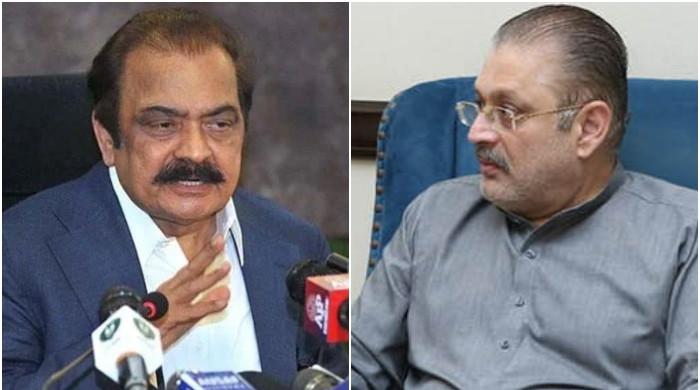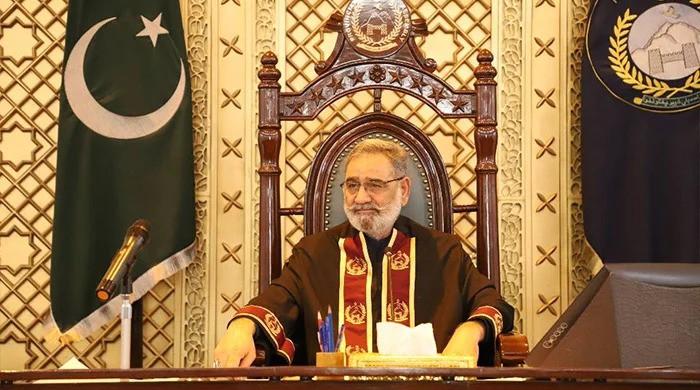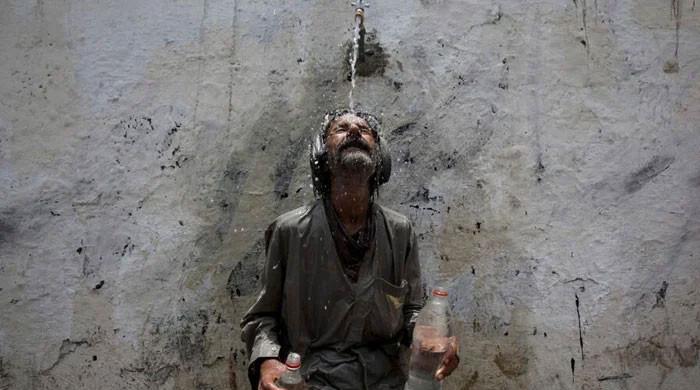Accountability court allows Dr Faisal Sultan to examine Imran Khan
Accountability court issues detailed verdict for Wednesday's hearing; Imran Khan's family also allowed to meet him
May 11, 2023

- Court allows Khan's wife, blood relations to meet him.
- Says Dr Sultan can form a medical team to check Khan.
- Khan's lawyer Khawaja Haris also allowed to meet Khan.
ISLAMABAD: An accountability court in Islamabad, hearing the Al-Qadir Trust case against Pakistan Tehreek-e-Insaf (PTI) Chairman Imran Khan, has allowed his family and physician Dr Faisal Sultan to meet the former prime minister, who is currently in the custody of National Accountability Bureau (NAB).
The decision came on Thursday in the detailed written verdict of the accountability court that remanded the PTI chief in NAB's custody for eight days.
The country's anti-graft watchdog acquired an eight-day physical remand of Khan in the land corruption case, during a hearing at Islamabad Police Lines, which was given the status of a court as a “one-time dispensation”.
On Wednesday, the sources had told Geo News that Khan’s legal team was initially denied permission to meet the party chief ahead of the hearing; however, once the hearing began Khan met his lawyers Khawaja Haris, Faisal Chaudhry, Ali Gohar, and Ali Bukhari.
“In view of contentions of the accused and his council, it is directed that Dr Faysal of Shoukat Khanun Hospital be allowed to associate the medical team which is examining the accused or to check if required. Wife and blood relations of the accused shall be allowed to meet him during custody of the NAB […],” the verdict read.
The court also directed the officials concerned to make arrangements of a meeting of Khan “on phone/mobile”. Moreover, Khan’s lawyer Haris has also been allowed to meet Khan at a reasonable time during custody.
Imran Khan declared medically ‘fit’
During yesterday's hearing, the sources said that a medical report submitted to the NAB showed that Khan was fit and he did not complain about any pain to the doctors examining him.
The report submitted by the board, headed by Dr Rizwan Taj, showed that Khan’s blood pressure, sugar level, and heartbeat were normal after repeated tests.
However, Khan had expressed fears that he might be killed in prison by slow poisoning.
While expressing his fear, the former prime minister apprised the accountability court that authorities "give an injection that causes a person to die slowly”, and sought medical treatment from Sultan.
Khan was apprehended on Tuesday by Rangers — becoming the seventh former prime minister to be arrested in Pakistan — on the orders of the NAB, an autonomous anti-graft agency, in relation to the corruption case. He was then moved to its office in the garrison town of Rawalpindi for questioning.
Khan's incarceration in a surprise move was declared legal by the Islamabad High Court later in the day, while the Supreme Court also turned down a plea challenging the arrest.
The cricketer-turned-politician faces a slew of court cases and was also indicted today in Toshakhana case — which involved allegations that he did not properly disclose earnings from the sale of state gifts from his time in office.











